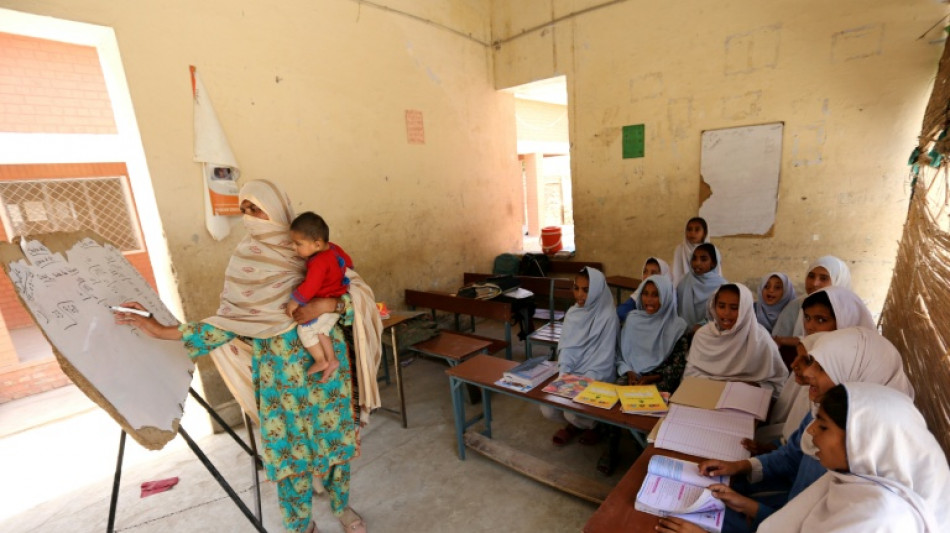
-
 Interpol lifts red notice for anti-whaling campaigner Paul Watson
Interpol lifts red notice for anti-whaling campaigner Paul Watson
-
Games giant Ubisoft bets on reorganisation to dispel blues

-
 Putellas and Spain eager to end Germany hoodoo in Women's Euro semi-final
Putellas and Spain eager to end Germany hoodoo in Women's Euro semi-final
-
Trump says confident US to reach Philippines trade deal
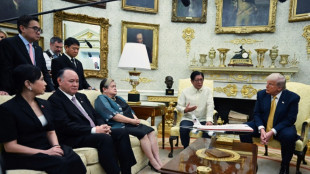
-
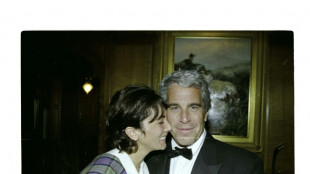 US Justice Department plans to interview Epstein accomplice Ghislaine Maxwell
US Justice Department plans to interview Epstein accomplice Ghislaine Maxwell
-
Bangladesh take second T20I for first series win over Pakistan
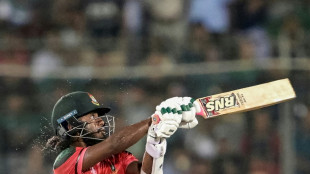
-
 Paret-Peintre lands first French Tour stage win in Mont Ventoux thriller
Paret-Peintre lands first French Tour stage win in Mont Ventoux thriller
-
US to leave UN cultural body, citing anti-Israel bias
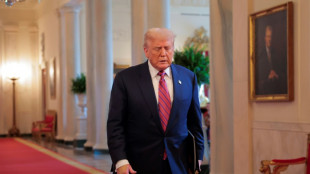
-
 Julia Roberts, Jude Law to feature at star-packed Venice Film Festival
Julia Roberts, Jude Law to feature at star-packed Venice Film Festival
-
Stocks slip as investors eye tariff impact among corporate earnings
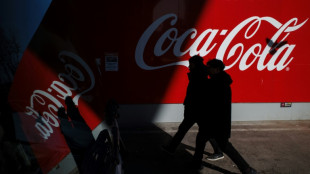
-
 General Motors profits fall on tariffs
General Motors profits fall on tariffs
-
Extreme weather misinformation 'putting lives at risk,' study warns
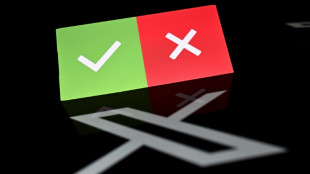
-
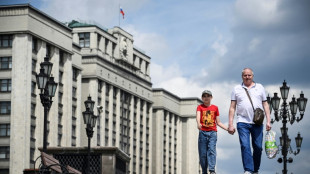 Russia seeks to fine web users searching for content deemed 'extremist'
Russia seeks to fine web users searching for content deemed 'extremist'
-
Paret-Peintre delivers Tour de France home win in Mont Ventoux thriller

-
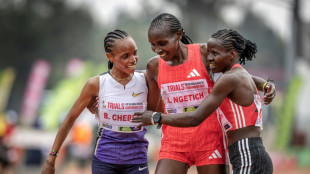 Janeth Chepngetich books world championships slot with upset win
Janeth Chepngetich books world championships slot with upset win
-
French Open sensation Boisson withdraws injured from Montreal

-
 France's culture minister to be tried on corruption charges
France's culture minister to be tried on corruption charges
-
US Treasury chief says no reason for Fed chair to step down
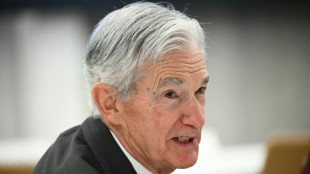
-
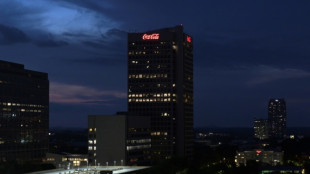 Coca-Cola plans US cane sugar alternative after Trump push
Coca-Cola plans US cane sugar alternative after Trump push
-
US to leave UN cultural body, citing 'national interest'
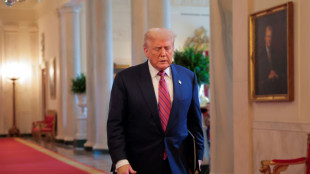
-
 India's Gill accuses England of ignoring 'spirit of the game' by time-wasting
India's Gill accuses England of ignoring 'spirit of the game' by time-wasting
-
Heat forces new Acropolis closure amid fiery temperatures
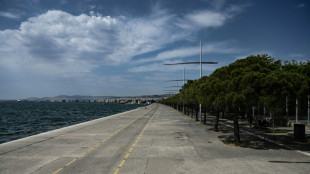
-
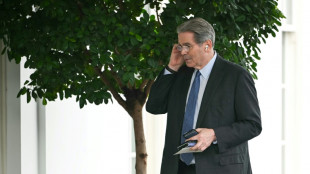 US Treasury chief eyes China tariff deadline extension in talks next week
US Treasury chief eyes China tariff deadline extension in talks next week
-
Mbeumo thrilled to follow in Ronaldo's footsteps at 'biggest club in the world' Man Utd

-
 Alcaraz withdraws from Toronto event for Wimbledon recovery
Alcaraz withdraws from Toronto event for Wimbledon recovery
-
Markets mixed as investors eye earnings and Trump tariffs
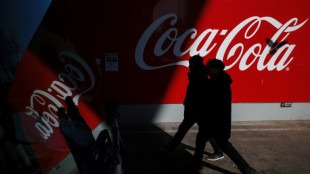
-
 India's Gill accuses England of ignoring 'spirit of the game' with time-wasting
India's Gill accuses England of ignoring 'spirit of the game' with time-wasting
-
Van der Poel drops out of Tour de France with pneumonia

-
 Stokes ready to push through pain barrier against India
Stokes ready to push through pain barrier against India
-
Newcastle cult hero 'Nobby' Solano appointed Pakistan coach

-
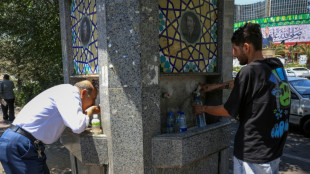 Heatwave hits water, electricity supplies across much of Iran
Heatwave hits water, electricity supplies across much of Iran
-
Pakistan landslide after heavy rain kills 5, with 15 missing
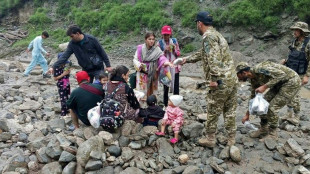
-
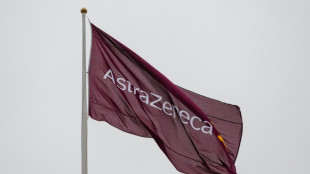 AstraZeneca to invest $50 bn in the US as tariff threat looms
AstraZeneca to invest $50 bn in the US as tariff threat looms
-
Lions survive ferocious test to edge First Nations and Pasifika XV

-
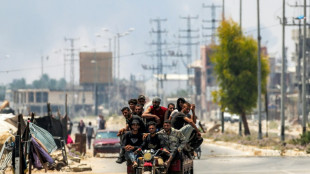 Gaza hospital says 21 children dead from malnutrition and starvation
Gaza hospital says 21 children dead from malnutrition and starvation
-
France's top diplomat calls for foreign press access to Gaza
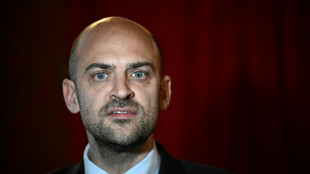
-
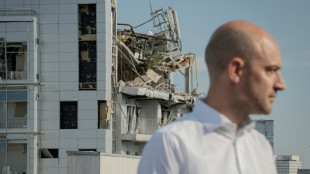 Top French diplomat visits Ukraine frontline region
Top French diplomat visits Ukraine frontline region
-
Bangladesh seethes as toll from jet crash at school hits 31
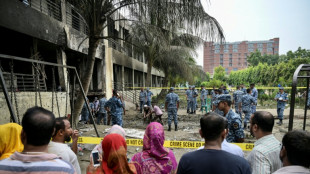
-
 Moscow not expecting 'breakthroughs' from Ukraine talks
Moscow not expecting 'breakthroughs' from Ukraine talks
-
Former England star Gascoigne released from hospital

-
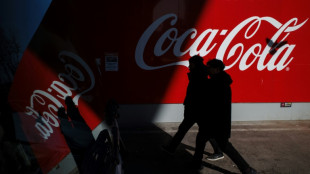 Stocks diverge with eyes on earnings, trade talks
Stocks diverge with eyes on earnings, trade talks
-
Philippines flooding displaces thousands as new storm threatens
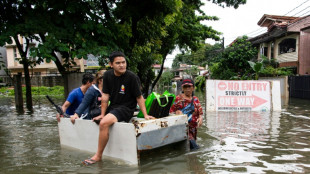
-
 Price hikes nibble at demand for Lindt chocolate
Price hikes nibble at demand for Lindt chocolate
-
Amnesty urges probe into Israeli strike on Tehran prison
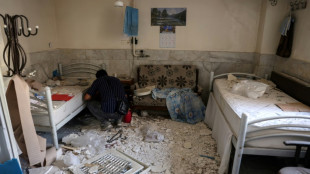
-
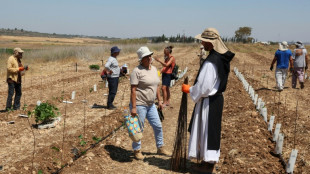 New vines bring hope to Israeli monastery scorched by wildfire
New vines bring hope to Israeli monastery scorched by wildfire
-
China's top football body to form esports team after World Cup flop

-
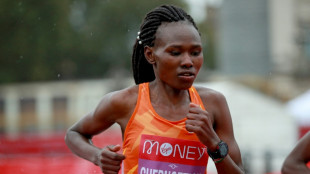 Kenya athletics trials under shadow of Chepngetich suspension
Kenya athletics trials under shadow of Chepngetich suspension
-
Stocks mixed with trade and earnings in focus
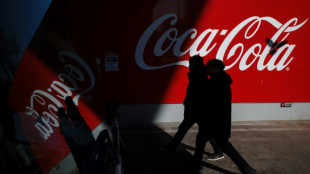
-
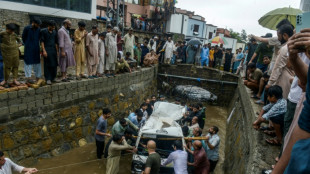 Pakistan landslide after heavy rain kills 3, with 15 missing
Pakistan landslide after heavy rain kills 3, with 15 missing
-
UK gives green light to £38 bn Sizewell C nuclear plant


Without papers: Ghost lives of millions of Pakistanis
Ahmed Raza is invisible in the eyes of his government, unable to study or work because, like millions of other Pakistanis, he lacks identification papers.
In the South Asian nation of more than 240 million people, parents generally wait until a child begins school at the age of five to obtain a birth certificate, which is required for enrolment in most parts of Pakistan.
Raza slipped through the cracks until the end of elementary school, but when his middle school requested documentation, his mother had no choice but to withdraw him.
"If I go looking for work, they ask for my ID card. Without it, they refuse to hire me," said the 19-year-old in the megacity of Karachi, the southern economic capital.
He has already been arrested twice for failing to present identification cards when stopped by police at checkpoints.
Raza's mother Maryam Suleman, who is also unregistered, said she "didn't understand the importance of having identity documents".
"I had no idea I would face such difficulties later in life for not being registered," the 55-year-old widow told AFP from the single room she and Raza share.
Pakistan launched biometric identification cards in 2000 and registration is increasingly required in all aspects of formal life, especially in cities.
In 2021, the National Database and Registration Authority estimated that around 45 million people were not registered. They have declined to release updated figures or reply to AFP despites repeated requests.
To register, Raza needs his mother's or uncle's documents -- an expensive and complex process at their age, often requiring a doctor, lawyer or a newspaper notice.
The paperwork, he says, costs up to $165 -- a month and a half's income for the two of them, who earn a living doing housework and odd jobs in a grocery shop.
Locals whisper that registration often requires bribes, and some suggest the black market offers a last resort.
"Our lives could have been different if we had our identity cards," Raza said.
- 'No time or money' -
In remote Punjab villages like Rajanpur, UNICEF is trying to prevent people from falling into the same fate as Raza.
They conduct door-to-door registration campaigns, warning parents that undocumented children face higher risks of child labour and forced marriage.
Currently, 58 percent of children under five have no birth certificate, according to government figures.
Registration fees depend on the province, ranging from free, $0.70 to $7 -- still a burden for many Pakistanis, about 45 percent of whom live in poverty.
"Our men have no time or money to go to the council and miss a day's work," said Nazia Hussain, mother of two unregistered children.
The "slow process" often requires multiple trips and there is "no means of transport for a single woman," she said.
Saba, from the same village, is determined to register her three children, starting with convincing her in-laws of its value.
"We don't want our children's future to be like our past. If children go to school, the future will be brighter," said Saba, who goes by just one name.
Campaigns in the village have resulted in an increase of birth registration rates from 6.1 percent in 2018 to 17.7 percent in 2024, according to UNICEF.
This will improve the futures of an entire generation, believes Zahida Manzoor, child protection officer at UNICEF, dispatched to the village.
"If the state doesn't know that a child exists, it can't provide basic services," she said.
"If a child does not have an identity, it means the state has not recognised their existence. The state is not planning for the services that the child will need after birth."
Muhammad Haris and his brothers, who have few interactions with the formal state in their border village in the mountainous province of Khyber Pakhtunkhwa, have not registered any of their eight children.
"The government asks for documents for the pilgrimage visa to Mecca," a journey typically made after saving for a lifetime, he told AFP.
For him, this is the only reason worthy of registration.
sam-jma-la-vid/sbh/ecl/lb/dhw
K.AbuTaha--SF-PST
